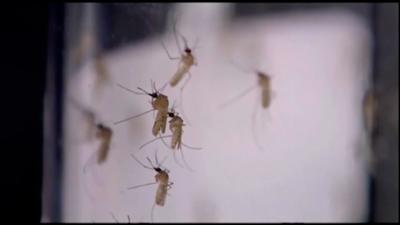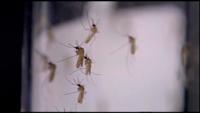DELAWARE - The first Delawarean to contract West Nile virus in 2024 is recovering after being hospitalized, according to state health officials. The Delaware Department of Agriculture and Delaware Division of Public Health confirm that person lives in New Castle County.
Additionally, the first two cases of West Nile virus in horses were also confirmed in Delaware. Both horses, which were unvaccinated, are located in Kent County and currently recovering.
Health officials note that only about 20% of people infected with West Nile virus will develop symptoms. These symptoms can include fever, aches, nausea and a rash.
To reduce the risk of mosquito bites and potential infection, wear light-colored long sleeves and pants when outdoors, use insect repellent, eliminate standing water around their properties and keep horses indoors during dawn and dusk.
Signs of infection in horses can include fever, anorexia, head pressing, depression or personality change, wobbling or staggering, weakness, blindness, convulsions, muscle spasms in the head and neck or hind-limb weakness. Humans can also be infected with EEE, but transmission requires a mosquito bite, and the virus cannot be directly transmitted between horses or between horses and people.
With the first hard freeze, the mosquito season should come to a close; however, the State Veterinarian is urging horse owners to contact their veterinarians to ensure they add the WNV and EEE vaccines to their annual vaccination schedule for 2025. Neither disease has a specific drug treatment, and EEE infections in horses are fatal in 70% to 90% of cases and 30% of WNV cases.
Animal health professionals with formal training in diagnosing or recognizing animal diseases and pests of horses and livestock are required to report suspected or confirmed cases of WNV and EEE to the Office of the State Veterinarian within 24 hours.
To report suspected cases of human West Nile Virus, contact the DPH Office of Infectious Disease Epidemiology (OIDE) at 302-744-4990 during regular business hours from 8 a.m. - 4:30 p.m., Monday – Friday; 888-295-5196 outside of normal business hours; fax: 302-622-4194; or email reportdisease@delaware.gov.
Animal health questions should be directed to the Delaware Department of Agriculture at 302-698-4500. Ask for the Poultry and Animal Health Section.
For mosquito biology/ecology and control, contact the Delaware Department of Natural Resources and Environmental Control’s Mosquito Control Section at 302-739-9917.
For mosquito relief requests in downstate areas south of Dover, contact Mosquito Control’s Milford field office at 302-422-1512.







